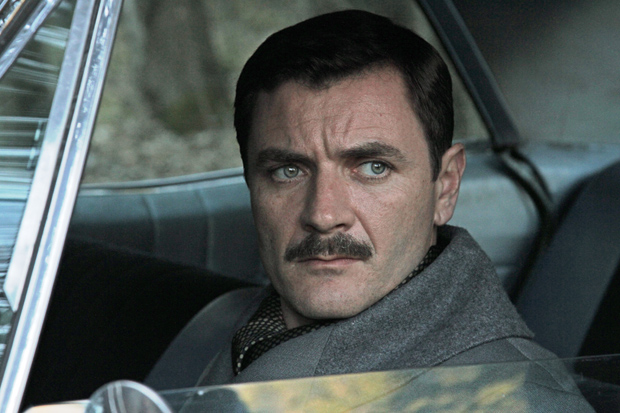Wakolda is not a sunny film for a sunny day, just so you’re aware, but as there is so little else around — August is a hopeless month for films; August is a dumping ground for the sub-par — you are going to have to take that on the chin, bear it as best you can, and while this is not sunny it is, at least, masterfully made. Set in Argentina in 1960, it’s a fictional imagining of how a German doctor insinuates himself on a family, and how that doctor turns out to be Josef Mengele, the ‘Angel of Death’ from the Nazi concentration camps. It’s not a thriller exactly. Instead, it is an unsettling, atmospheric, mood-driven piece, which, I should add, just so you’re aware, also features creepy dolls. That’s how un-sunny it is.
This is the third film from Lucía Puenzo (XXY, The Fish Child), who, in this instance, directed, produced, wrote the script, and also the book on which it is based. (This makes me tired just thinking about it.) It is fictional, but with a factual element, as Mengele did flee Europe for South America after the war although, unlike Eichmann, he always managed to evade capture. (He died in Brazil in 1979; drowned in an accident, the poor love.) Our story starts when the doctor (Alex Brendemühl, who looks like a disturbing version of Omar Sharif, as if Sharif weren’t disturbing enough) and the family (husband, wife, three children) meet on the road as they are all travelling to the same remote village where the doctor appears to be expected, and the family are due to take over a hotel. The village is a German-speaking, Nazi-sympathising enclave where the houses are built like Alpine chalets, old photos reveal schoolchildren performing the ‘Sieg Heil!’, and everyone just about stops short of wearing Lederhosen. Apparently, there were villages like this in Argentina at that time, which is as terrifying as anything else in this film.

The doctor says little, watches constantly. He wins the trust of the family’s 12-year-old daughter, Lilith (Florencia Bado; wonderfully natural and unmannered), who is short for her age, teased at school, and called ‘dwarf’, as would probably happen in a German enclave. He can help her grow, he offers. Lilith, on the brink of adolescence, responds to and is captivated by his adult interest, as is the pre-adolescent way. His attention is flattering, makes her feel special, loved. Theirs is the central relationship, made especially unnerving as we don’t know what he’s going to do to her, exactly. He fills notebooks with eerie medical drawings. He writes copious notes in tiny handwriting. He has something to do with a mysterious clinic on the lake. He starts treating her with growth hormones, which sometimes lead to fever, and sometimes don’t.
He has the co-operation of her mother, but not her father, who has sensed the doctor’s predatory menace. Her father is a doll-maker. The doctor is convinced the dolls can be factory-made, and becomes excited at the thought of mass-producing all these perfect, blue-eyed, porcelain-faced little girls, which we then see, set out spookily in rows. The dolls are, I’m guessing, a metaphor for Mengele’s own chilling ambition; his ambition for uniform, Aryan perfection. A bit overplayed, this metaphor, and probably unnecessary, but it is nerve-jangling all the same.
Nerve-jangling. That may be the best word for it. A Nazi hunter arrives in town. Hydroplanes keep landing at the clinic on the lake. The doctor deduces Lilith’s mother is pregnant with twins (and if you don’t know how Mengele experimented on twins then look it up, regret having looked it up, and weep).
But what actually happens plays second fiddle to the atmosphere, which is singularly oppressive and tense throughout. Puenzo is never showy. There are no histrionics. Many shots are simply shots of Mengele’s turquoise car winding its way through the stunning Patagonian scenery. It is quietly creepy and although she has something to say — about adolescent attraction; about maternal guilt; about Argentina’s open-door policy to Nazi war criminals; about the monster in our midst — none of it is shoved down our throats. Like I said, not sunny, but masterfully told, and if there is one thing I’ve learned in life it is this: you can’t always have everything. Get over it.






Comments